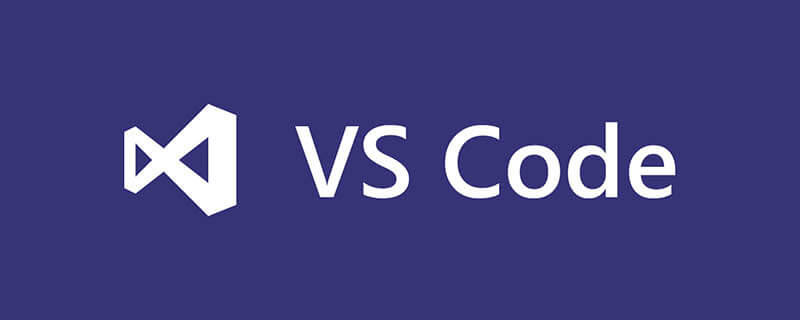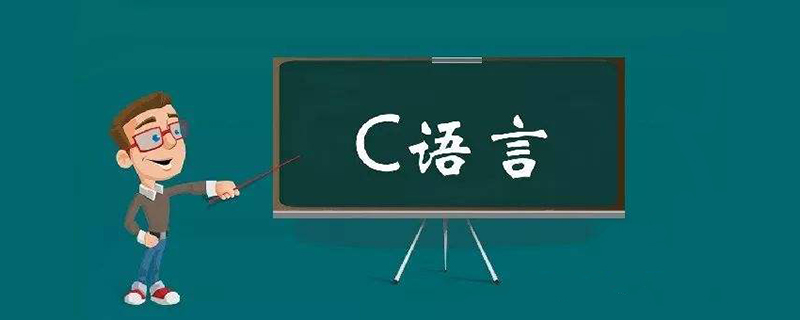
The characteristics of C language can be summarized as follows:
1. C language is concise, compact and flexible.
The core content of C language is very small, with only 32 keywords and 9 control statements; the program writing format is free, and all unnecessary components are compressed.
2. Concise and practical expression.
C language has a set of powerful operators, with 44 types, which can construct various forms of expressions. With one expression, you can achieve functions that may require multiple statements in other languages.
3. Have rich data types.
The more data types there are, the stronger the data’s expressive ability. C language has various data types of modern languages, such as: character type, integer type, real type, array, pointer, structure and union, etc. Various complex data structures such as linked lists, stacks, queues, trees, etc. can be implemented. Pointers make the transfer of parameters simple and fast, saving memory.
4. Has the characteristics of low-level languages.
It has functions and description methods similar to those of assembly language, such as address operations, binary digit operations, etc. It can directly operate resources such as hardware ports and make full use of computer resources.
Therefore, C language not only has the characteristics of a high-level language that is easy to learn and master, but also has the ability to operate hardware with machine language or assembly language. Therefore, C language can be used as both a system description language and a general programming language.
5. is a structured language, suitable for modular design of large programs.
C language provides basic control statements for writing structured programs, such as if~else statements, switch statements, while statements, do~while statements, etc. A C program is a collection of functions. Functions are the basic unit that constitutes a C program. Each function has an independent function, and data is passed between functions through parameters.
In addition to functions written by users, different compilation systems and operating systems also provide a large number of library functions for users to use, such as input and output functions, mathematical functions, string processing functions, etc., and flexible use of libraries Functions simplify program design.
6. Various versions of the compilation system provide preprocessing commands and preprocessor programs.
Preprocessing extends the functions of the C language, improves the portability of the program, and facilitates the debugging of large programs.
7. Good portability.
A program can be transplanted from one environment to run in a completely different environment without or with minor changes. This is because system library functions and preprocessors isolate possible machine-related factors from the source program, making it easy to redefine relevant content between different C compilation systems.
8. The generated target code is of high quality.
The running efficiency of the target code obtained from the C source program is only 10% to 20% lower than that written in assembly language, which can give full play to the efficiency of the machine.
9. C language has loose grammatical restrictions and great freedom in programming.
C programs do not perform checks such as array subscript out-of-bounds and variable type compatibility when running, but the programmer himself ensures the correctness of the program. C language allows conversion of almost all data types. Character types and integer types can be freely mixed. All types can be used as logical types. You can define new types by yourself, and you can also force a certain type to a specified type.
Disadvantages:
1. C program errors are more hidden.
The flexibility of the C language makes it more error-prone when writing programs in it, and the C language compiler does not check for such errors.
Similar to assembly language, these logic errors need to be run before the program can be discovered.
C language also has some hidden dangers that need to be paid attention to by programmers. For example, if the comparison "==" is written as assignment "=", there is no grammatical error. Such logical errors are difficult to find, and it is often very difficult to find them. Time consuming.
2. C programs can sometimes be difficult to understand.
C language has relatively simple grammatical components and is a small language. However, its many data types, rich operators and diverse combinations make it difficult to understand.
Regarding operators and associativity, the most common saying people say is "multiplication and division first, then addition and subtraction, and operations at the same level are from left to right", but the C language is far more complicated than this.
When the C language was invented, in order to reduce character input, the C language was relatively concise, and it also enabled the C language to write programs that were almost incomprehensible to ordinary people.
3. C programs are sometimes difficult to modify.
Considering the increase in program size, modern programming languages usually provide language features such as "classes" and "packages", which can decompose the program into more manageable modules. .
However, C language lacks such features, making it difficult to maintain large programs.
Thank you everyone for reading, I hope you will benefit a lot.
This article is reproduced from: https://tigerisland.blog.csdn.net/article/details/51719922
Recommended tutorial: "C Language"
The above is the detailed content of Features that novices must know when learning C language. For more information, please follow other related articles on the PHP Chinese website!
 (超详细)VScode中配置C语言环境的方法Dec 05, 2022 pm 07:05 PM
(超详细)VScode中配置C语言环境的方法Dec 05, 2022 pm 07:05 PMVScode中怎么配置C语言环境?下面本篇文章给大家介绍一下VScode配置C语言环境的方法(超详细),希望对大家有所帮助!
 c语言中node是什么意思Jul 06, 2022 pm 03:51 PM
c语言中node是什么意思Jul 06, 2022 pm 03:51 PM在C语言中,node是用于定义链表结点的名称,通常在数据结构中用作结点的类型名,语法为“struct Node{...};”;结构和类在定义出名称以后,直接用该名称就可以定义对象,C语言中还存在“Node * a”和“Node* &a”。
 c语言怎么将数字转换成字符串Jan 04, 2023 pm 03:20 PM
c语言怎么将数字转换成字符串Jan 04, 2023 pm 03:20 PMc语言将数字转换成字符串的方法:1、ascii码操作,在原数字的基础上加“0x30”,语法“数字+0x30”,会存储数字对应的字符ascii码;2、使用itoa(),可以把整型数转换成字符串,语法“itoa(number1,string,数字);”;3、使用sprintf(),可以能够根据指定的需求,格式化内容,存储至指针指向的字符串。
 c语言开根号运算符是什么Mar 06, 2023 pm 02:39 PM
c语言开根号运算符是什么Mar 06, 2023 pm 02:39 PM在c语言中,没有开根号运算符,开根号使用的是内置函数“sqrt()”,使用语法“sqrt(数值x)”;例如“sqrt(4)”,就是对4进行平方根运算,结果为2。sqrt()是c语言内置的开根号运算函数,其运算结果是函数变量的算术平方根;该函数既不能运算负数值,也不能输出虚数结果。
 c语言数组如何初始化Jan 04, 2023 pm 03:36 PM
c语言数组如何初始化Jan 04, 2023 pm 03:36 PMC语言数组初始化的三种方式:1、在定义时直接赋值,语法“数据类型 arrayName[index] = {值};”;2、利用for循环初始化,语法“for (int i=0;i<3;i++) {arr[i] = i;}”;3、使用memset()函数初始化,语法“memset(arr, 0, sizeof(int) * 3)”。
 c语言合法标识符的要求是什么Aug 27, 2020 pm 01:47 PM
c语言合法标识符的要求是什么Aug 27, 2020 pm 01:47 PMc语言合法标识符的要求是:1、标识符只能由字母(A~Z, a~z)、数字(0~9)和下划线(_)组成;2、第一个字符必须是字母或下划线,不能是数字;3、标识符中的大小写字母是有区别的,代表不同含义;4、标识符不能是关键字。
 c语言中源文件编译后生成什么文件Nov 23, 2022 pm 07:44 PM
c语言中源文件编译后生成什么文件Nov 23, 2022 pm 07:44 PMc语言编译后生成“.OBJ”的二进制文件(目标文件)。在C语言中,源程序(.c文件)经过编译程序编译之后,会生成一个后缀为“.OBJ”的二进制文件(称为目标文件);最后还要由称为“连接程序”(Link)的软件,把此“.OBJ”文件与c语言提供的各种库函数连接在一起,生成一个后缀“.EXE”的可执行文件。
 c语言中*p和p的区别是什么Nov 29, 2022 pm 06:03 PM
c语言中*p和p的区别是什么Nov 29, 2022 pm 06:03 PM区别:1、表示的含义不同,“*p”表示此指针指向的内存地址中存放的内容,“p”表示一个指针变量的名字,指此指针变量所指向的内存地址。2、输出的格式不同,“*p”输出的一般是一个和指针类型一致的变量或者常量,“p”输出的是一个16进制数, 输出一个指针的地址。3、功能不同,“*p”是让程序去那个地址取出数据,“p”用于存放的是地址。


Hot AI Tools

Undresser.AI Undress
AI-powered app for creating realistic nude photos

AI Clothes Remover
Online AI tool for removing clothes from photos.

Undress AI Tool
Undress images for free

Clothoff.io
AI clothes remover

AI Hentai Generator
Generate AI Hentai for free.

Hot Article

Hot Tools

MantisBT
Mantis is an easy-to-deploy web-based defect tracking tool designed to aid in product defect tracking. It requires PHP, MySQL and a web server. Check out our demo and hosting services.

Atom editor mac version download
The most popular open source editor

Dreamweaver Mac version
Visual web development tools

Notepad++7.3.1
Easy-to-use and free code editor

SublimeText3 English version
Recommended: Win version, supports code prompts!






